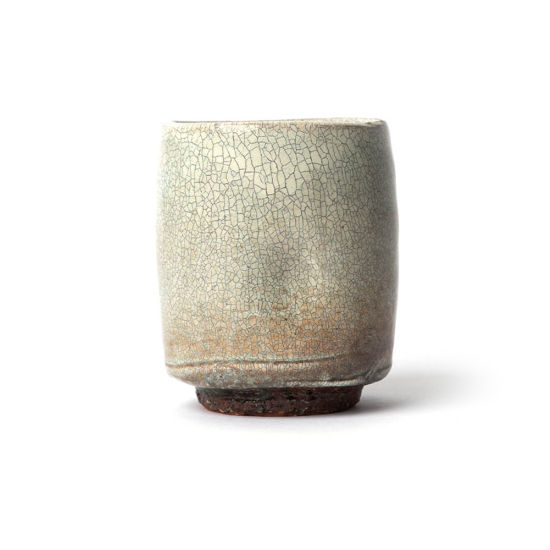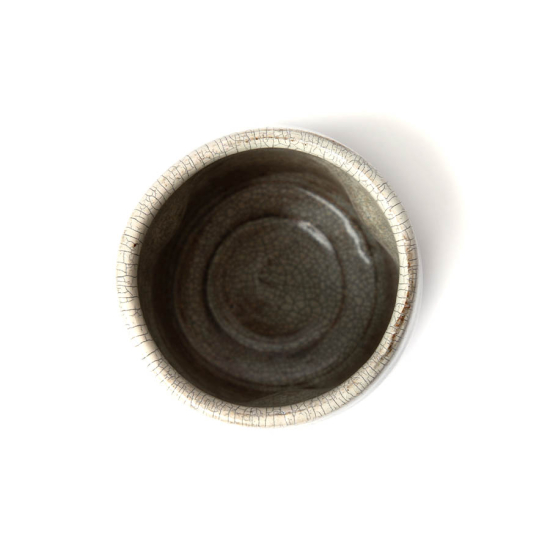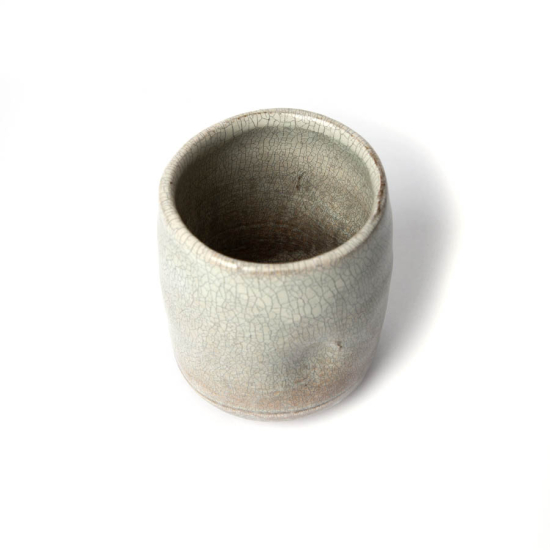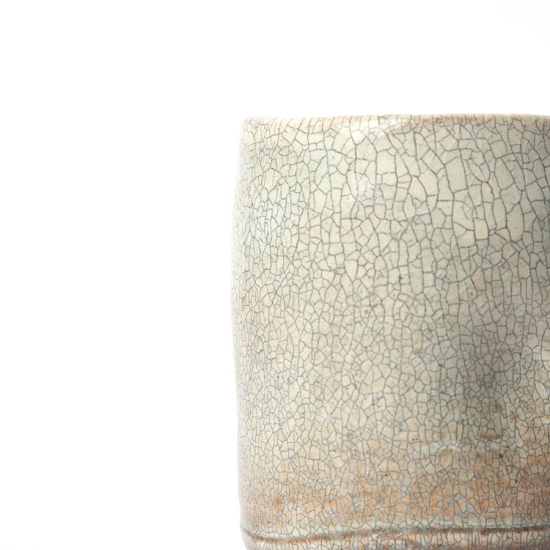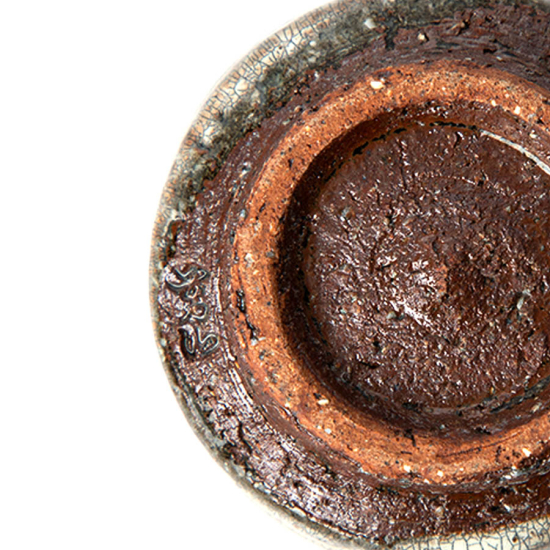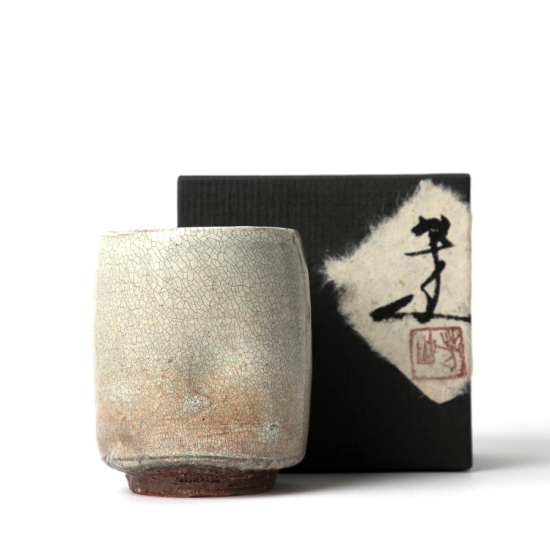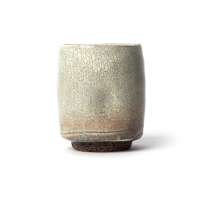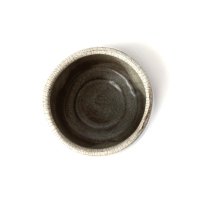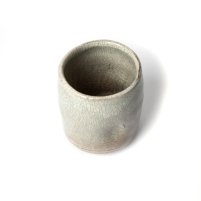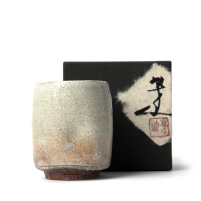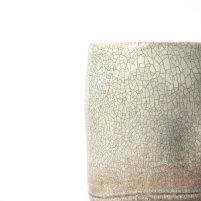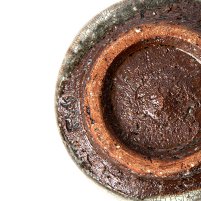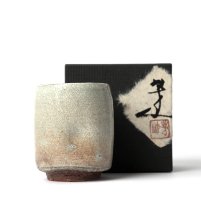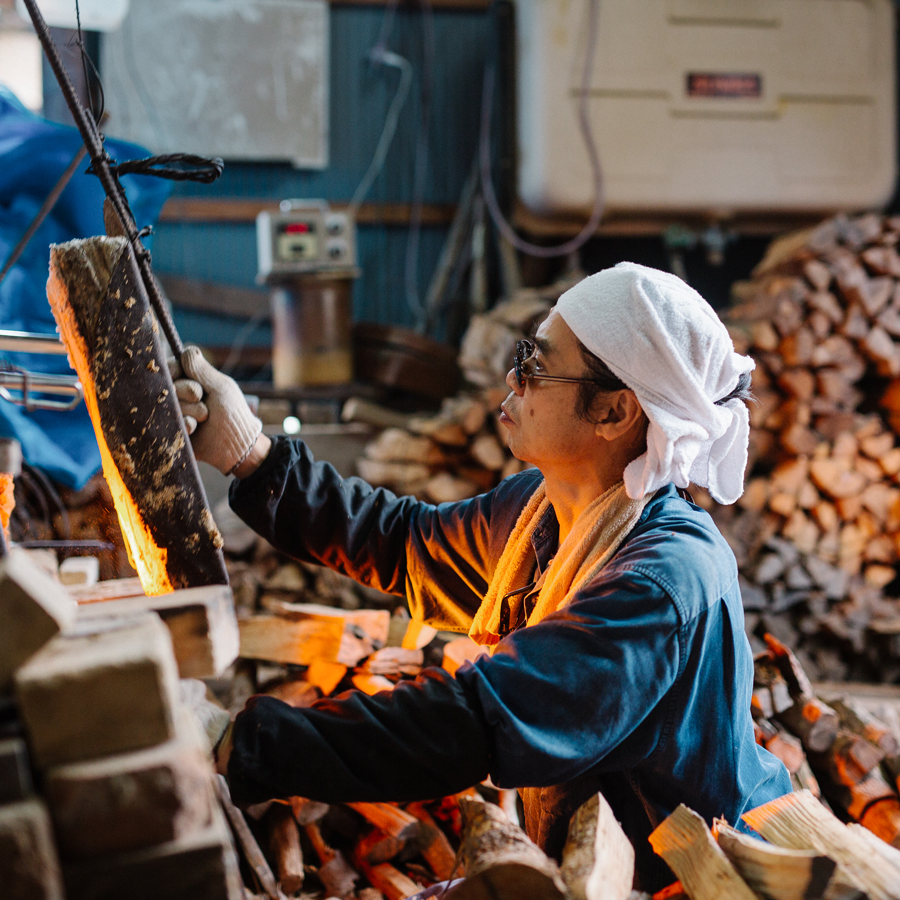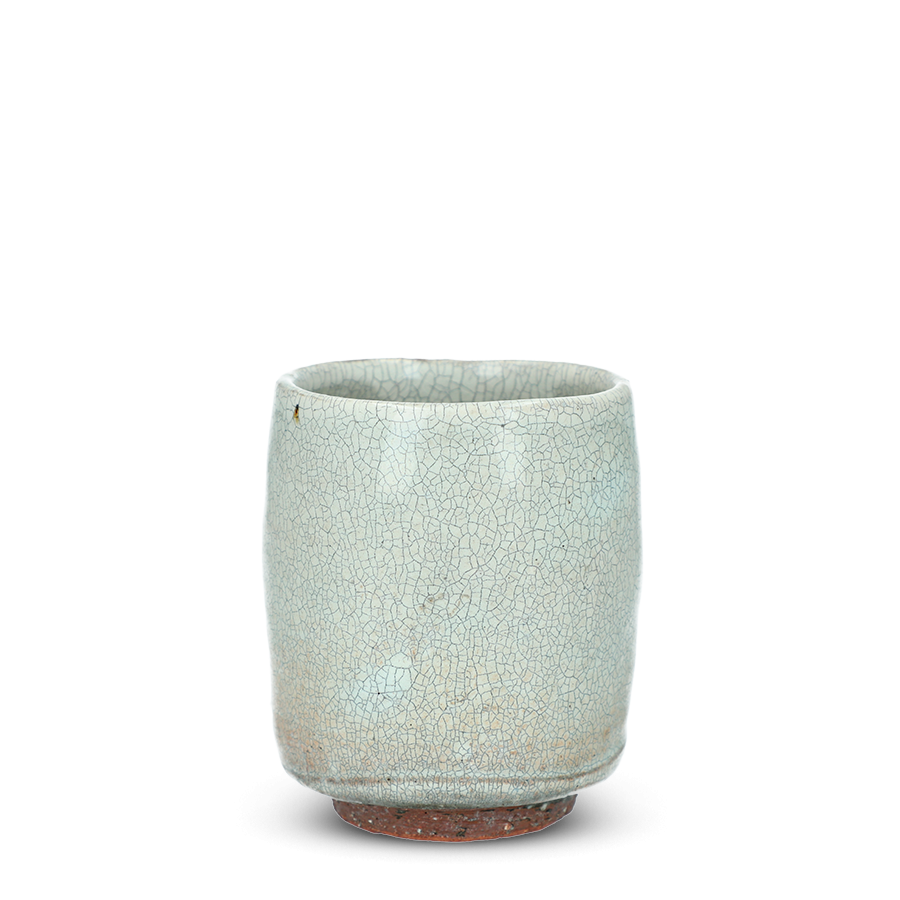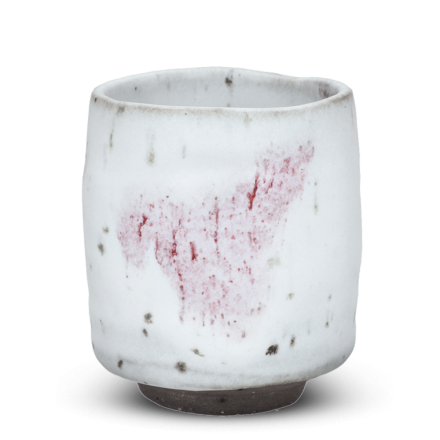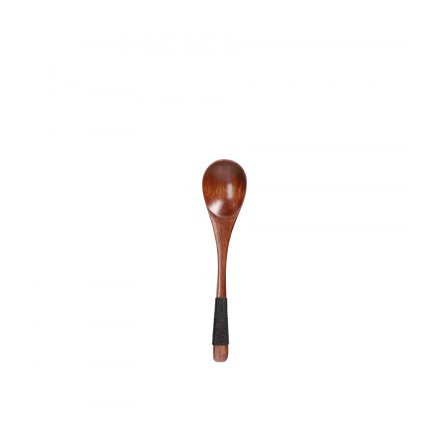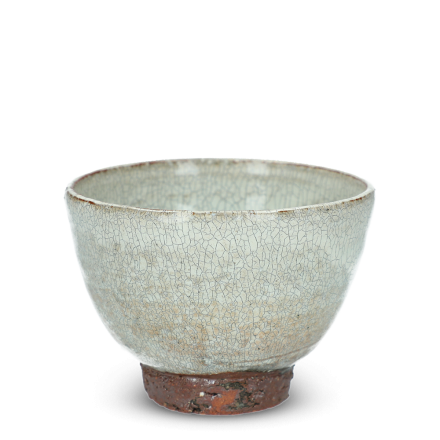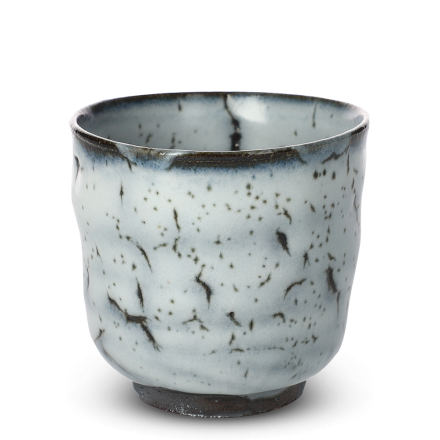Hand wash with warm water and a soft cloth or sponge, using a mild washing-up liquid as necessary. Do not put in dishwasher, microwave or oven.
Teacup Shigaraki
Hyosetsu
Haku Yunomi
Hozan Tanii
SKU
3953
Like cracks on a frozen lake, this rustic Yunomi teacup is coated in a Hyosetsu (氷雪) "ice and snow" white glaze concocted by the contemporary Shigaraki-yaki potter, Hozan Tanii. Enjoy the changing Keshiki "scenery" of this cup as it slowly absorbs tea in the crackles over time.
| Product | Teacup, off-white |
| Artist | Hozan Tanii |
| Origin | Shigaraki, Shiga, Japan |
| Volume | 260ml |
| Dimensions | Ø7.7cm x 9cm |
| Weight | 205g |
| Material | Ceramic |
| Glaze | Wood ash glaze (木灰釉) |
| Decoration |
Yōhen ombré (窯変) |
| Artist's mark | Seal to base |
Each piece is handmade and unique, therefore size and finish may vary slightly. Please note that the brown colouring inside the cup is a result of the glaze and should not be mistaken for tea stains.
In stock



